QuestionDear Corlena,
I too am from the East Coast, NL to be exact but now live in Florida where it is SO HARD to find consistent hay. This summer after returning from a trip to Newfoundland, and after boarding my horses out for 5 weeks, I got so disgusted with the hay ( I knew they weren't eating it, they dropped weight.) I just switched to STANDLEE alfalfa cubes. I get the TABOOS from surrounding horse owners and it's been in the back of my mind but they seem to do quite well. They have had alfalfa before and it hasn't bothered them. They get pasture grass but it IS Florida grass and not that nutritious, at least where I am. I also feed 10 lbs. alfalfa/ day and 4 lbs. 10/10 HORSEMAN'S EDGE for a 1200lb. paint. Similar feedings for my mare and just a little less for my Arab/Quarter. Am I feeding too much, too little. They seem to be doing quite well. I always get good reports from my trusted farrier, even with all the water we have had this summer.
AnswerHi Dexter,
If I'm not mistaken, what you're asking is if its acceptable to feed strictly alfalfa to horses and/or feed them strictly hay cubes?
As a fellow Canadian, from Eastern Canada, I know of the 'no alfalfa for horses' taboo. Truth is, horses can live just fine on alfalfa hay and/or cubes. Some think alfalfa is too rich, some are concerned about the high calcium to phosphorous ratio. Hay cubes have a very consistent, middle of the line quality overcoming the common concerns even if they were founded (which I'm not convinced they are). The only caution I have when feeding mostly alfalfa is that although it is high in crude protein, it doesn't have a great amino acid profile. Alfalfa is traditionally low in lysine, the most important amino acid for horses. Consider adding a high lysine source feed like soybean meal (or a supplement with high soybean meal content) to the diet to complete the amino acid profile. And feed only as much as you need, which is best determined by calculating a ration.
I do have a few concerns with replacing all of the forage in the diet with cubes and/or pellets. 'Effective fiber', that's long stem fiber of any sort, is important for the digestive physiology of the horse. It causes the horse to chew, which not only helps the natural wear of the teeth but also produces large volumes of saliva that works to neutralize the acidity of the stomach and promotes digestive health. Hay cubes/pellets don't require a lot of chewing, don't wear teeth and don't promote saliva production. 'Effective fiber' also creates a bit of a 'fiber mat' in the stomach, separating and slowing down the movement of smaller feed (grain) particles, ensuring they remain in the stomach long enough to be digested and improving the rate at which digestive enzymes infiltrate the particles by creating particle separation. So although the hay cubes may be of superior nutrient quality, I would suggest you still supply some long stem forage for your horses to chew on. It may not provide much in the way of nutrients but it will do wonders for gut health.
Hope this is of some help.
Corlena

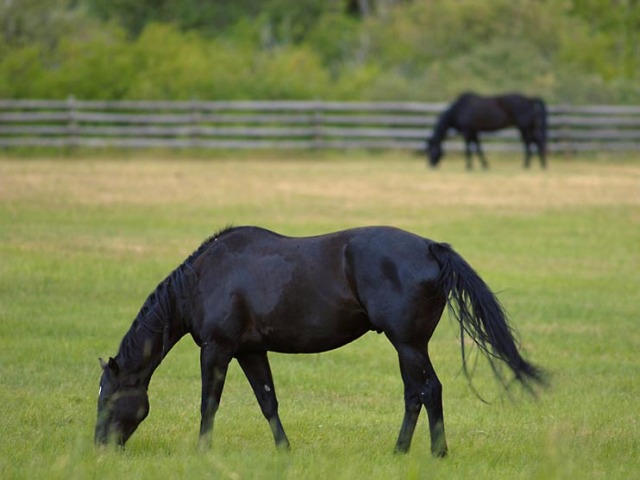 relaxing at poll
Questionrelaxing at poll
QUESTION: hello maam, d
relaxing at poll
Questionrelaxing at poll
QUESTION: hello maam, d
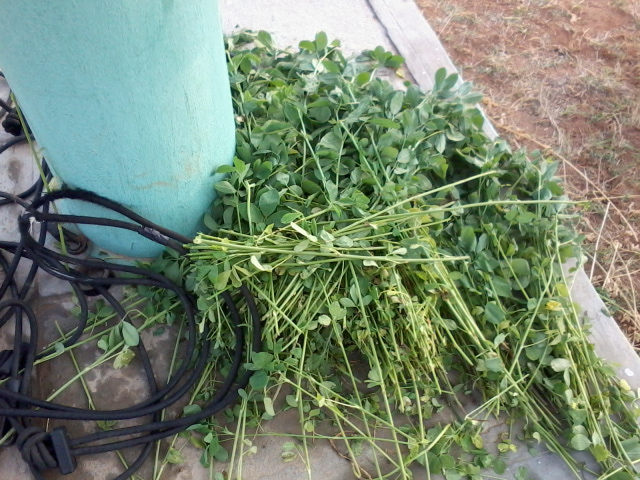 alfalfa grass for baby horses
Question
alfalfa grass
hello maam, my trainer ke
alfalfa grass for baby horses
Question
alfalfa grass
hello maam, my trainer ke
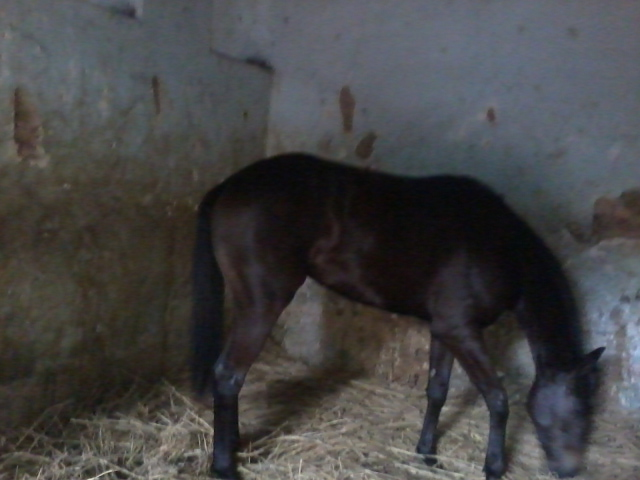 raw milk for under developed baby horses
Question
under developed
hello maam. top trainer
raw milk for under developed baby horses
Question
under developed
hello maam. top trainer
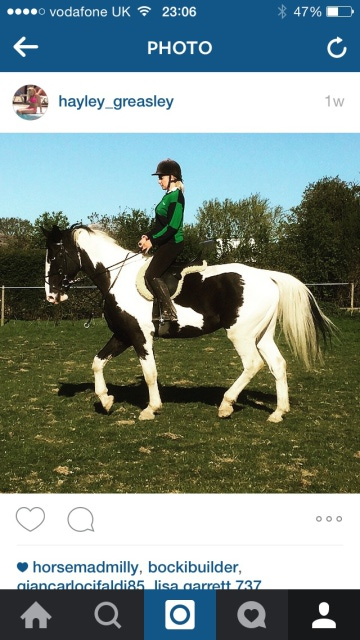 Feeding
Question
Cisco
I have a 17.2 Dutch warmblood who
Feeding
Question
Cisco
I have a 17.2 Dutch warmblood who
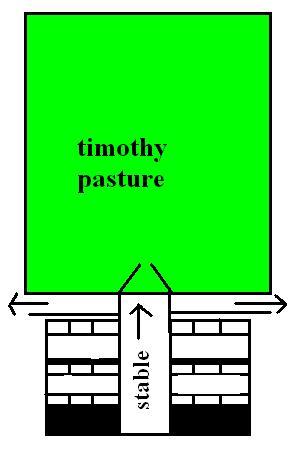 stables inside my pasture
Question
stables inside my past
hello maam, can i set l
stables inside my pasture
Question
stables inside my past
hello maam, can i set l